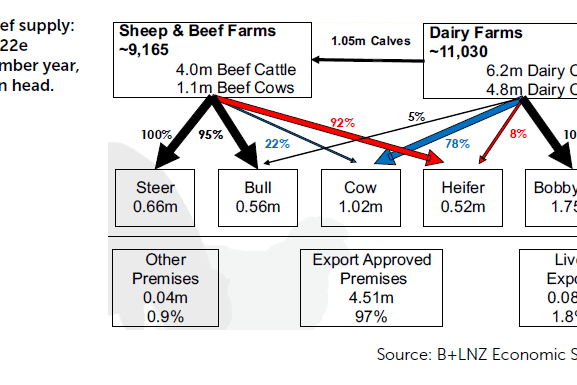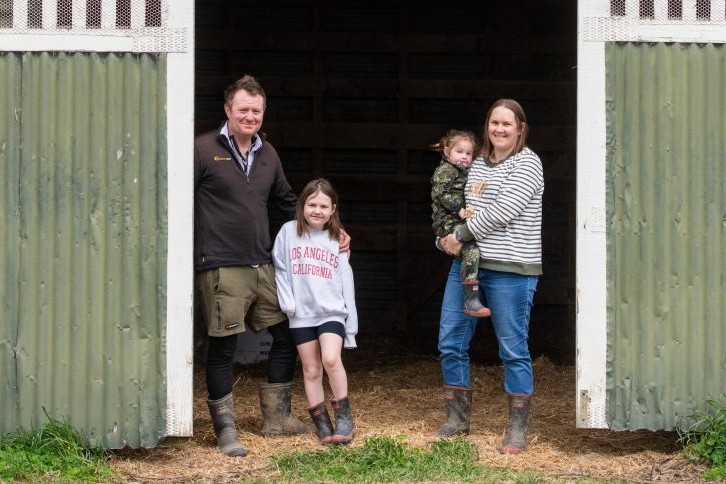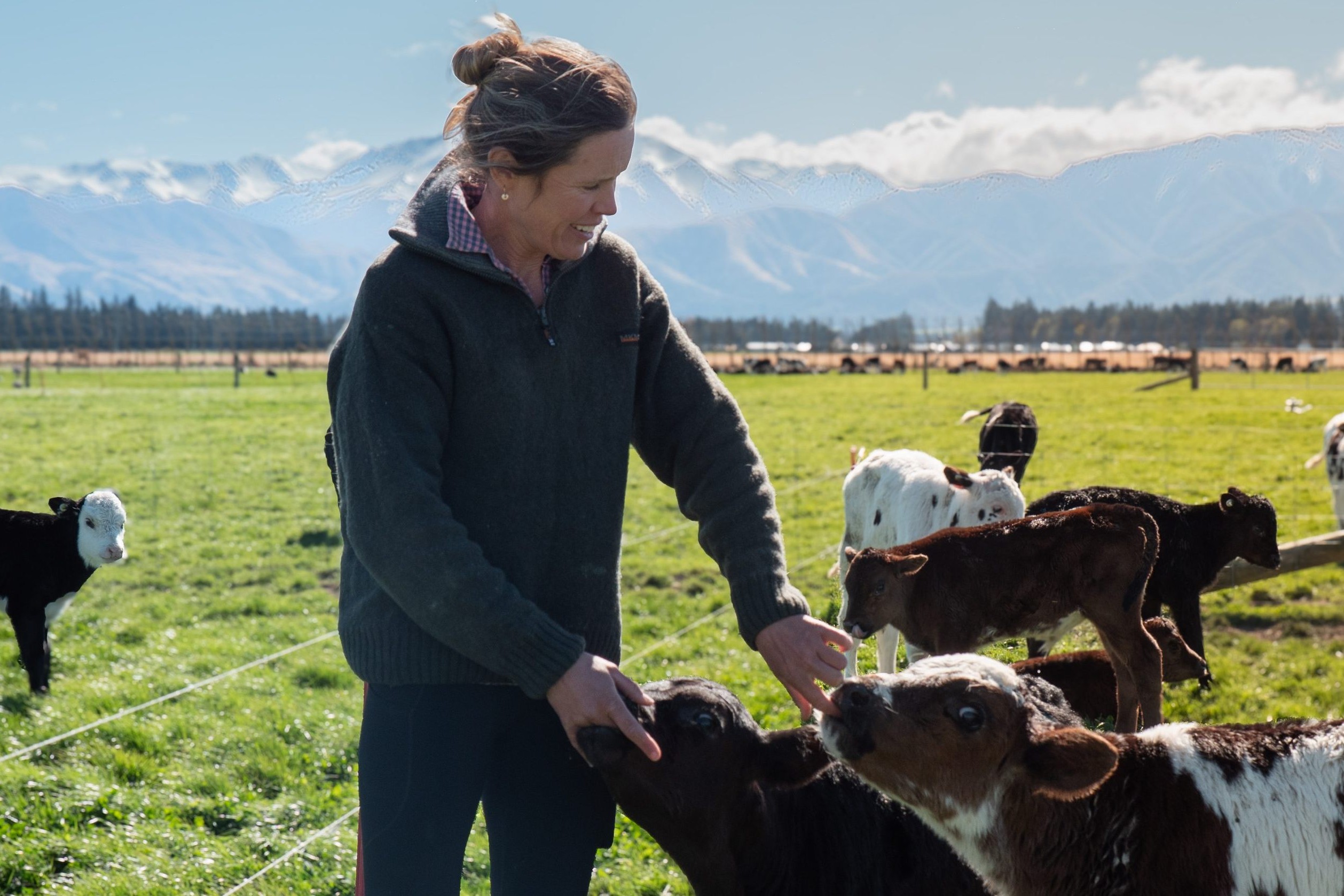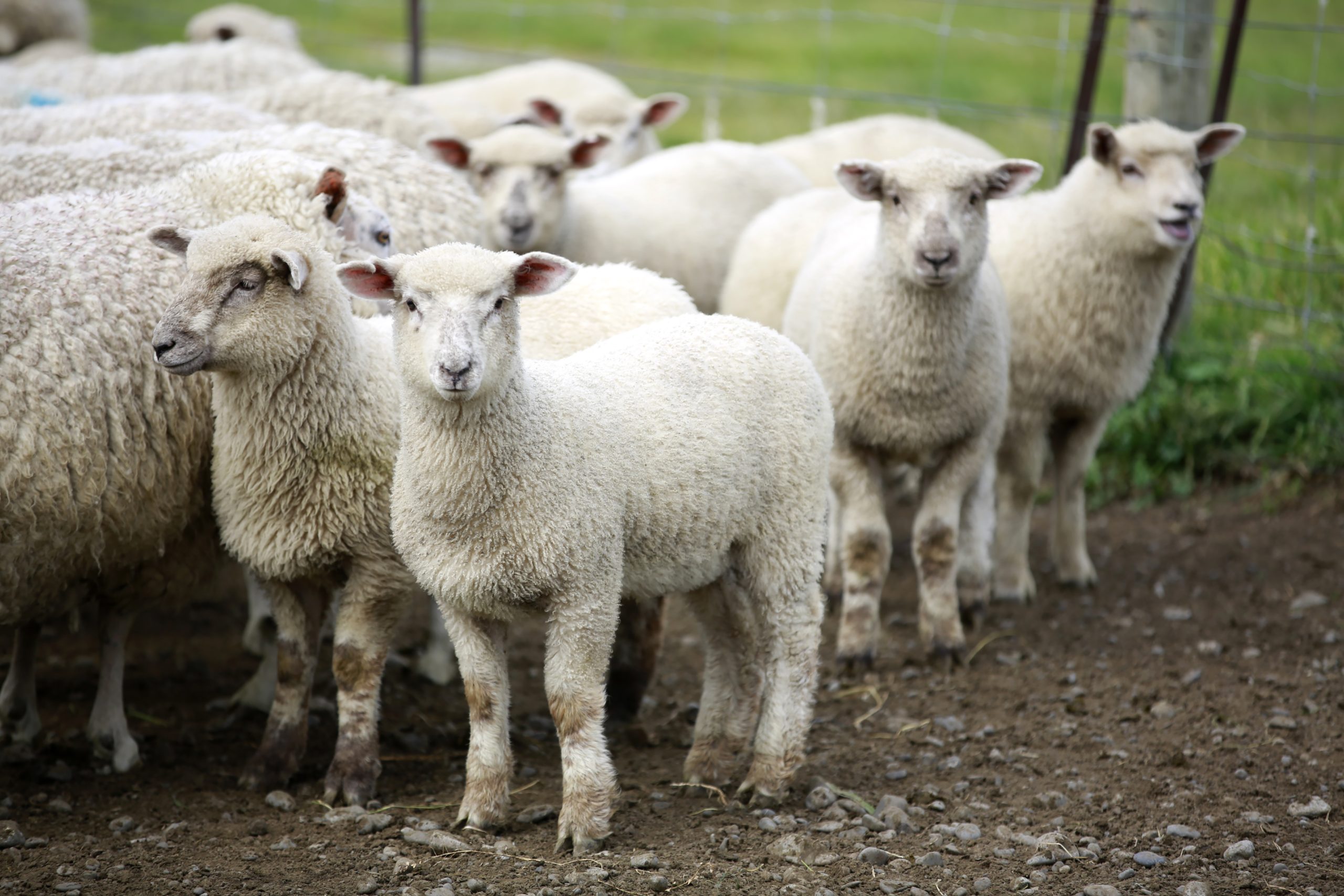Demand for dairy-beef calves is likely to outstrip supply, Bob Thompson writes.
This year it appears the number of dairy-beef calves to be reared will be down and this will impact the general beef market. Number changes flow through to the number of cattle available to trade and ultimately in the number to truck and processing.
The number of dairy-origin calves that end up on sheep and beef farms is often discussed and debated but there can be little doubt the numbers are large and significant. To fully appreciate the impact of dairy beef supply, it’s useful to review the numbers.
Beef + Lamb New Zealand Economic Service figures indicate just over one million calves transfer from dairy to beef farms. Of those it is estimated half are bull calves and mostly high-content Friesian. That leaves about half a million calves sired by beef bulls out of dairy cows.
These dairy-origin calves combine with our traditional beef calves to make up the national processing statistics for finishing cattle.
When we review the last three years of processing data we find 70% of the steers are traditional beef breeds. It is a different story with heifers: just 36% are traditionally bred. The difference between steers and heifers comes about because most of the male calves that originate from dairy farms are bulls and these make up about 95% of the bulls processed in NZ each year.
This year it appears the number of dairy-beef calves being reared is faltering as farmers, and bull farmers in particular, are reluctant to face up to the increased cost of milk powder and meal. Inevitably this will mean fewer calves reared and in a couple of years a drop in the number of cattle processed. With a drop in the supply of calves the demand will likely outstrip supply; store prices will increase, and profit margins will decrease – a simple case of 101 economics!
Numbers have been consistent
If you dig into the numbers further, you discover the number of cattle processed has been reasonably consistent over the past three seasons. The numbers show slight ups and downs between seasons with a general but small increase. Of course there are two crops of calves in the pipeline, and we won’t know the real numbers emanating from them until they’re trucked and processed.
Traditional cattle have their origins with the beef cow, and she’s been under pressure. The traditional breeding cow regions have been hammered with drought and cannibalised by pines.
The B+LNZ Economic Service numbers indicate just over one million cows will be processed in the 2021-22 season but again we’ll need to wait and see what the processing statistics reveal as time moves on.
One could guess there’s been more haemorrhage of breeding cow numbers than has been indicated or forecast. Certainly there’s more pressure in the pipeline with the backlog of farms that have yielded to forestry and carbon but not yet been planted.
Genetic overhaul needed
While it’s acknowledged the traditional breeding cow has historically been one of our best farming friends, she’s taking another hit with respect to her carbon footprint. To take her place there are plenty of dairy-beef calves that could be sourced with their mother’s carbon footprint having already been accounted for in the dairy herd. But for these dairy-beef calves to be serious contenders for beef finishing most will need a genetic overhaul.
For dairy-beef calves to be worthwhile for beef finishing their dairy dams should be at least 50% Friesian and their sires proven to be of high genetic merit for carcaseweight and/or carcase quality.
For change to occur beef finishers will need to preferentially buy calves of high genetic value/merit for finishing. Dairy farmers will need to understand that it’ll be a privilege for their calves to be bought and not expect a premium.
Calves that are five-10 days old are well and truly overpriced at $100-250 when in reality they should be closer to bobby-calf price at $20-50/head. A lesser and more realistic calf price would make it much easier for our professional calf rearers to make a profit too.
Lower prices for high genetic merit dairy-beef finishing calves may not seem realistic today, however, when the market dictates that we’ll need to rear more bobby calves, then it’s suggested agreement will be explicit in the ability to sell or not.
- Bob Thomson is a beef and sheep specialist with AgFirst Waikato.





